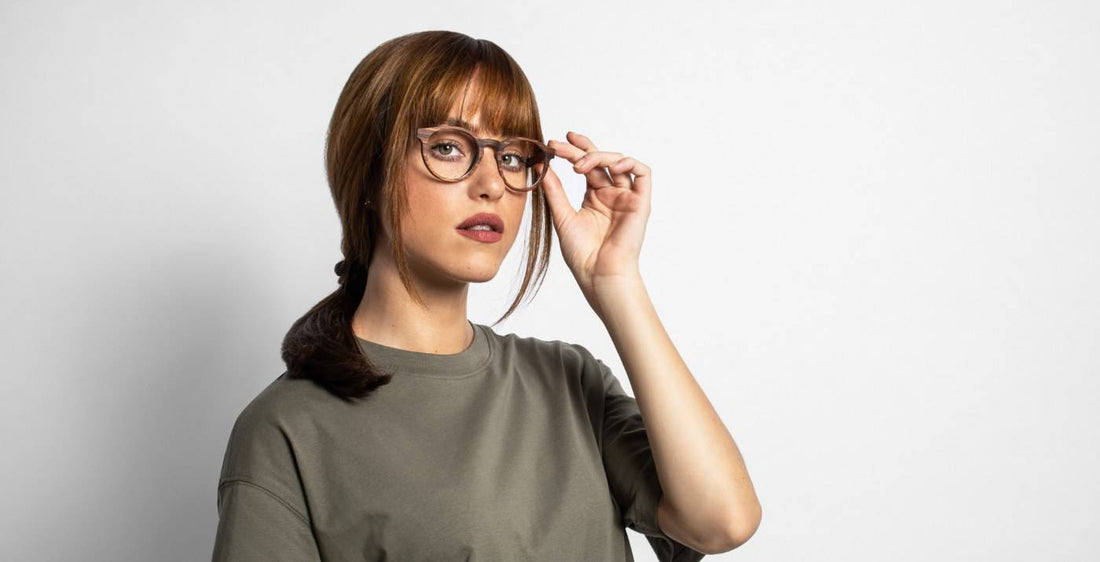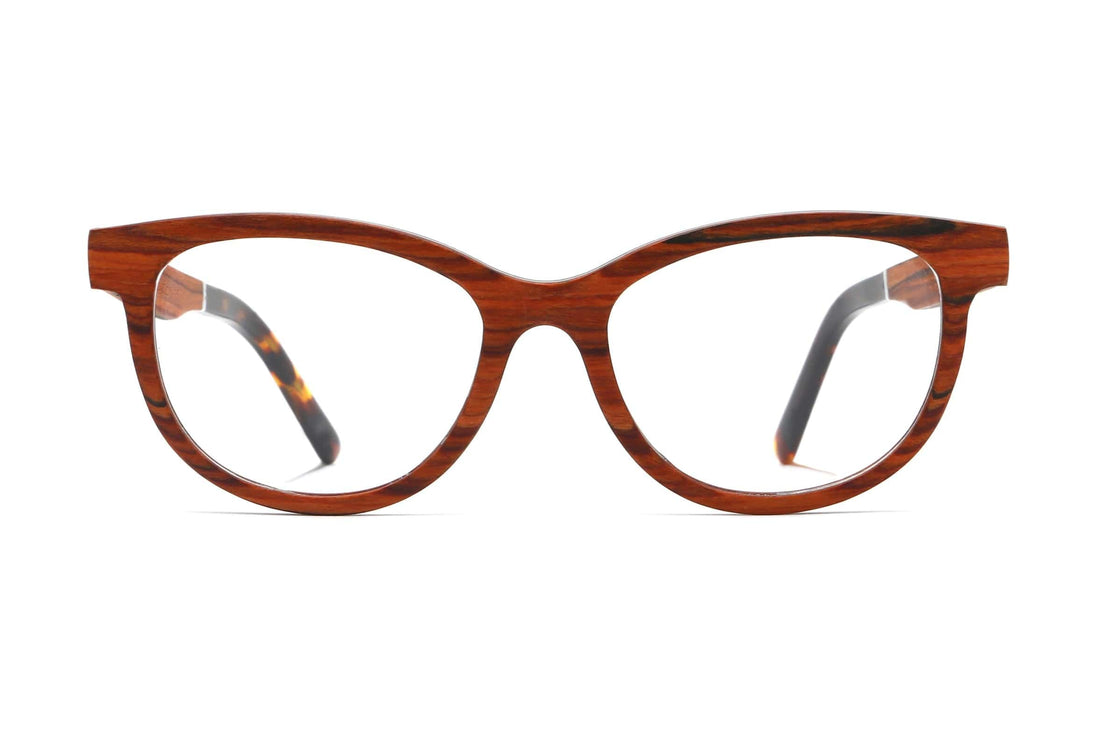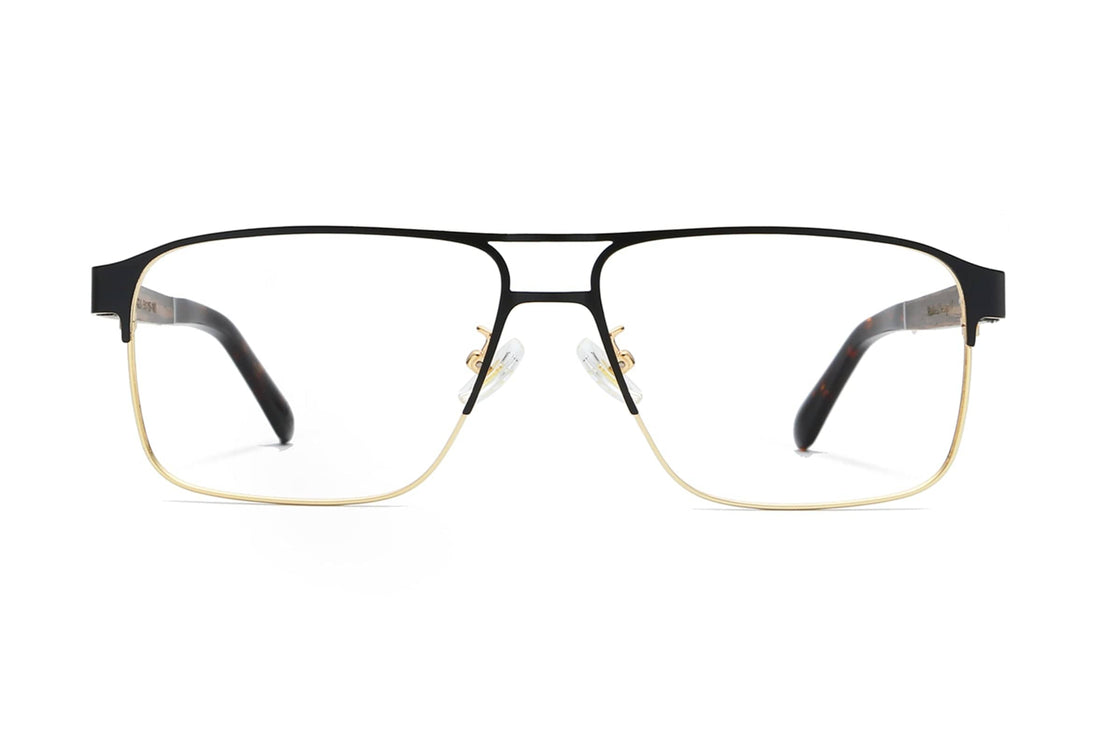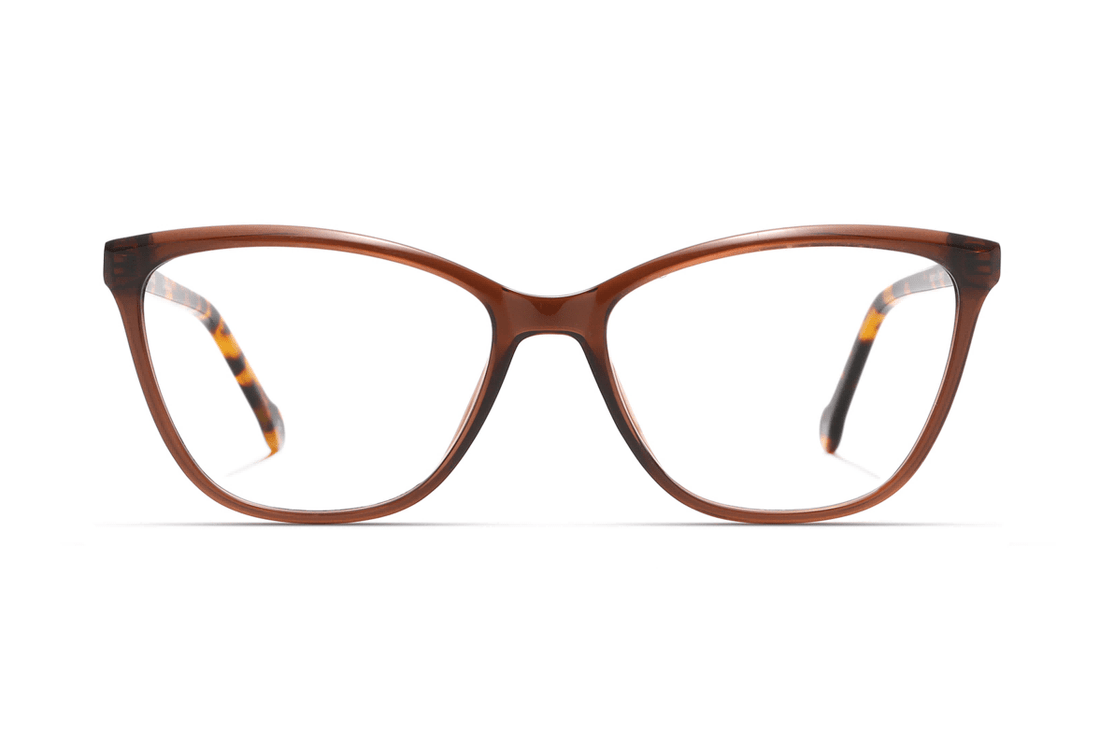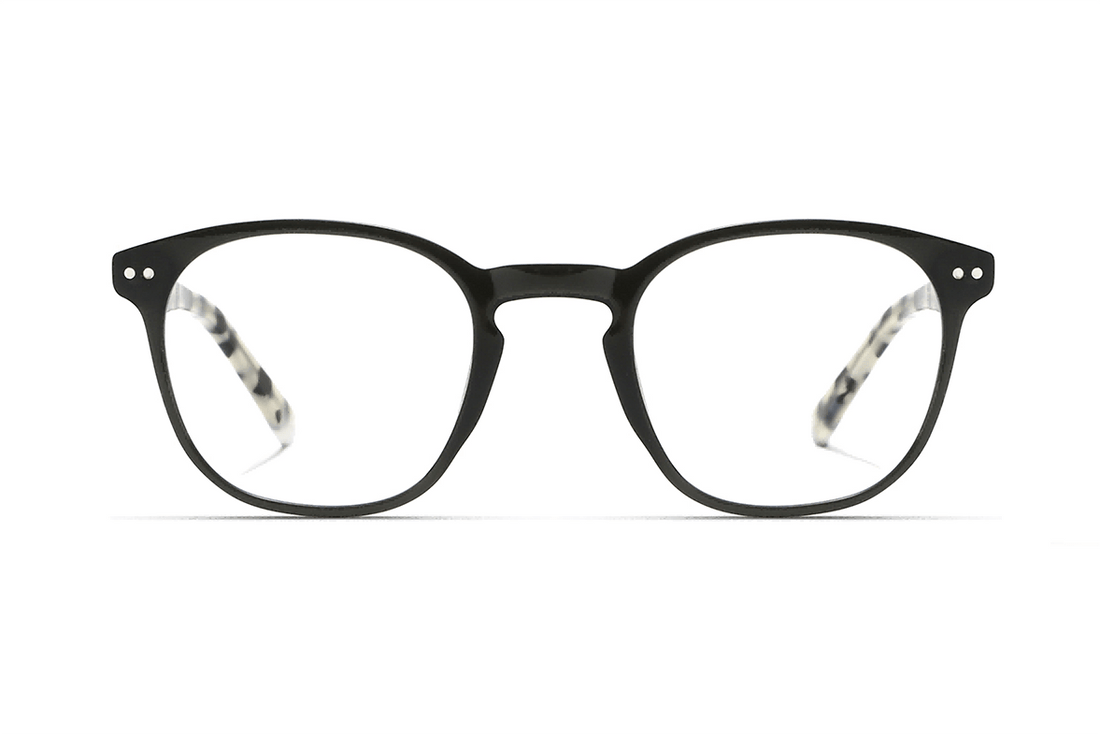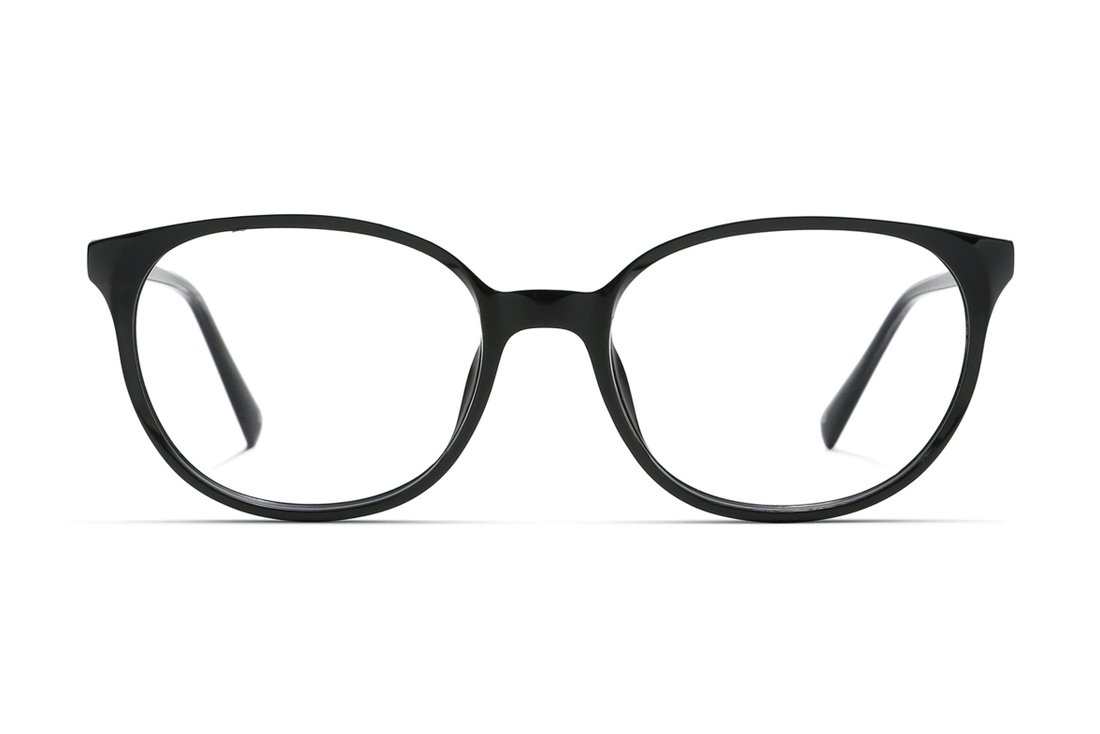
How To Get Used To New Glasses: Tips & Tricks
How To Get Used To New Glasses
Updated on 5 January 2025 • Heba from Kraywoods
Prescription glasses are supposed to help you obtain clearer and better vision, but have you ever put a pair on and experienced discomfort? The idea of putting a new pair of prescription eyeglasses, blue light glasses or reading glasses can be uncomfortable as you will be experiencing a new adjusted vision and a new frame. You may somewhat find that things around you don’t look the same. Don’t worry, this is completely normal.
It can take time for your eyes to adjust to new glasses and to feel comfortable while wearing them. However, for many this problem can last for a while. The initial discomfort just won't go away. The question is: can this be fixed? Let’s find out how long it takes to adjust to new glasses and what are the challenges you might face:
- Problems You Might Face with New Glasses
- How Long Does It Take to Adjust to New Glasses?
- Can Something Potentially Go Wrong?
- Safety while Adjusting to New Glasses
- Tips for Getting Used to New Glasses
- When Should You Contact Your Optometrist?
Problems You Might Face with New Glasses
Eye strain with new glasses? This CAN happen and it most often will. But, how long does it take to adjust to new glasses? We'll answer that later. You might face several issues with a new pair depending on the type of glasses and vision that’s in the lenses. Fear not, you can and will get used to new glasses. Have you ever faced any of the following problems?
1. Eye Strain
When you have new worn glasses, you might have eye strain issues. This usually happens to everyone. Don’t worry, you can get used to new glasses with a short time. Eyestrain symptoms can range from sore, tired, burning or itching eyes, to difficulty concentrating and keeping your eyes open. However, these are severe cases and you will most likely only experience mild discomfort.
2. Distortion
Blurry vision with new glasses? Several parts of your vision might change slightly. What can affect it the most is how far the object is from you. Visual distortion is most commonly caused by a change in your optical prescription. It can cause your eyesight to become blurry. Don't worry this is only temporary.
3. Fishbowl
For those who are unfamiliar with the term, the fishbowl effect is when your vision is being bent along the edges. It’s like looking directly at a fishbowl. However, there is a difference between barrel distortion and the fishbowl affect as they are not the same. With barrel vision you notice that the middle of your view is slightly enlarged compared to the other parts. This depends on the type of lenses that you are prescribed.
4. Depth Perception
Depth Perception: Blurry distance with new glasses? Initially you might find it difficult to lean how close or far an object is. But again, this happens to everyone with new glasses. It takes a while to adjust to your new vision and it's super common to experience such effects.
5. Headaches
New glasses make me dizzy! This can happen and dizziness can move to headaches too. This is the most serious and concerning issues of them all. You should directly consult with your eye doctor if you have a headache after wearing new glasses.
How Long Does it Take to Adjust to New Glasses?
Now comes the million-dollar question, the one which everybody has been waiting for: How long does it take to adjust to new glasses? Most of the eye care professionals will tell you two to three days to adjust to new glasses: a typical or usual change in new prescription. However, to get used to new glasses, the adjustment period may last up to two weeks in some of the cases. After 2 or 3 days, you can and should have your eyeglasses and your eyes checked up, if you're still experiencing heavy discomfort.
Pay attention to this, some people may take longer than two to three days to balance back their vision. If this is your first pair of prescription glasses or if there is a major shift in your new prescription or if you’re going from single vision lenses to progressive lenses, you should give yourself a period of about 2 to 3 weeks to get used to a new pair.
Can Something Potentially Go Wrong?
You have to understand that it’s common to take time to adjust to new glasses. Some temporary visual distortion can occur in two cases:
- Wearing glasses for the first time ever.
- Changing from one prescription to another.
No matter which one you are going through, many issues might be arising. Some minor problems will occur until your eyes automatically get used to new glasses. These usually go away very soon. Your eyes and your brain take time to process new images and a clearer vision. So, when was the last time you changed your new prescription? Is this your first time trying on eyeglasses? In each case, your brain might need a day or two to process these sharp new images. Typically, you may have been compensating for a poor vision for a while and your brain will automatically adjust to your new glasses quite rapidly.
Moreover, Astigmatism might cause further complications. Between eye exams, age can speed up the changes in your vision. The former may also be altered throughout the day since they get tired or react to other environmental factors.
Also, many people happen to experience some distortion in their vision when they first wear polarized sunglasses, as they are not used to the polarized filter in the lenses. The adjustment to a new pair of sunglasses should be quick and take no longer than a few days.
Additionally, the shift between two completely different shapes can cause trouble. For example, altering from a rectangular shaped frame to a round frame, or vice versa, may change the curve of the lenses in your eyeglasses. Also, changing from a small frame to a large one might change your peripheral vision. An optometrist can be able to adjust the prescription for the shape. But it could require some time to get used to new glasses. If your new frames don't affect your vision, how they feel on your face may also require a few days of adjusting.
Another issue to pay attention to is a wrong new prescription when changing glasses. If you don't know how to read glasses prescription, ask! This happens when your glasses are over correcting or under correcting your vision. In this case, you won't be able to adjust to new glasses. Errors during an eye exam or errors in the measurement process or the making of the glasses themselves can all be factors leading to a false prescription.
Human errors may sometimes occur despite the mainly digital creation of lenses and a dispensing optician's meticulousness in taking measurements properly. In these cases, no matter how much time you take to get used to new glasses, you will keep experiencing issues with your vision.
As a general tip, when wearing a new pair of glasses, try to pay attention to the visual effects you're experiencing. If you notice that the visual clarity or discomfort doesn't improve within 5 to 7 days, then it can be a sign of a wrong prescription. This process may take longer with bifocal lenses or progressive lenses, so you may want to give yourself 2 to 3 weeks to get comfortable with the glasses. If these issues persist, make sure to visit your optician so that they can check the prescription or retest your vision to make sure that your new glasses are perfect for your needs.
Safety while Adjusting to New Glasses
Anything related to our health can be quite scary. Therefore, we immediately think of how to protect ourselves. You know what they say, safety first! There are these small acts that you must pay attention to. Take care of yourself while driving, walking on broken ground or stairs. Also, be careful when working with unsafe machinery or completing any tasks involving concentration.
With an unclear vision, stay away from danger. Better yet, ask someone to assist you! There is nothing wrong with that. Keep in mind the adjustment period may take some more time if you have progressive lenses or your new glasses are bifocals. At the end of the day, your safety in health is what matters most.
Tips for Getting Used to New Glasses
Are there any solutions to this dilemma? Many people are probably asking: what would be the best thing you could do to adjust to new glasses with your eyes and brain? Here’s what you can do:
1. Wear Them as Much as You Can
Wear them as your primary pair and make sure to wear them for several consecutive hours during the day. If you try and ease your way in by changing them with your previous eyeglasses, it will take much longer to get used to new glasses. Wear glasses as soon as you get up, that is the right time when your eyes will adapt more easily to the new vision. Don't wait until too late in the evening to wear them, as your eyes and brain might already tired and you will have a harder time tolerating any the old glasses and adapting to the lenses.
2. Make Sure You Have a Comfortable Frame
Your new eyeglasses should adjust well for your face. A major advice would be to choose a frame that suits well with your face shape. It is important to balance your pair with your facial features. So get to know the glasses for your face shape. If you feel that your frame is somewhat uncomfortable or the fit is not optimal, visit your local optician in order to get them correctly adjusted.
3. Find and Use New Areas in Your Lenses
If you have progressive eyeglasses, you’ll need to find and use new areas in your lenses instead of using whatever space is most convenient. There are three main vision zones in a progressive lens:
- Distance
- Intermediate
- Near
Test the different vision zones in your lenses by looking through different parts of the lens without moving or tilting your head. This will allow you to understand where your vision zones are in the lenses and use them properly.
4. Keep Your New Glasses Clean
We might now have the energy for that but keeping your glasses clean is a good way to adjust to new eyeglasses. We know in some situations: "New glasses make me dizzy" but did you know that dirty lenses are a major cause of dizziness? Keep a microfiber cloth with you and a lens spray, you never know when you might use them. Be careful not to use a paper towel, they can create scratches on your lenses. Taking care of your glasses and knowing the do's and don'ts of prescription glasses are crucial to guarantee a smooth transition into your new pair.
5. Protect Your New Glasses
Our last tip to getting used to new glasses is quite simple. It doesn't have anything to do with you having the glasses on. On the contrary, when you are not wearing your glasses, make sure you keep them in a hard case, especially if you carry them around. You never know when the next person might just bump into you, this could damage your new glasses therefore won't be adjusted perfectly or aligned well on your face.
When Should You Contact Your Optometrist?
Nobody said that to adjust to new glasses is an easy process. On the contrary, to get used to new glasses, you should be in some sort of pain. It doesn't last forever though. The period ranges from a minimum of three days to a maximum of two weeks. However, it CAN take longer if you are switching between lenses and glasses. So should you contact an optomerist? Sure thing, under one condition. If the eyetsrain, headache, nausea and distorted blurred vision are not gone within the first two weeks then contacting a professional will help. Your optometrist will know how to read eye prescription and therefore pick out the problem you might be facing.
Buying a new pair of prescription eyeglasses is exciting, but keep in mind to stay patient at first. Give yourself, your eyes and your brain enough time to adapt to them.
Think of it like buying a new pair of running shoes. When you first wear them, they might not be the most comfortable, until your feet get used to them and you enjoy wearing them after a certain period. It will be the same for your eyewear, always remember that you may need to go through an adjustment period before being able to enjoy your new vision. When you finally do, it would definitely be worth it.






